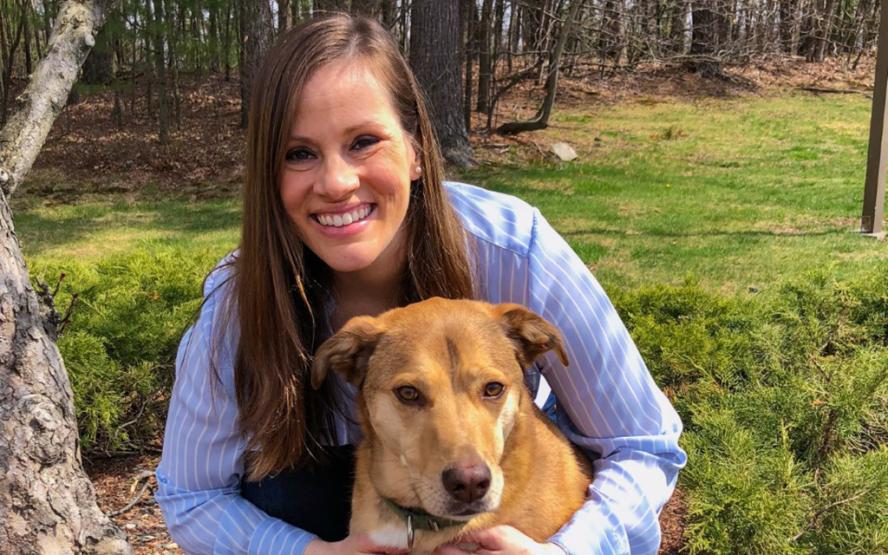-
About
- Leadership & Faculty
- News & Events
-
Academics
- Graduate
- Advanced Clinical Training
- Continuing Education
- Academic Departments
- Academic Offices
- Simulation Experiences
-
Student Life
-
Research
-
Hospitals & Clinics
- Emergency Care
- Hospital Services
-
Community Outreach
- Volunteer
From Veteran to Veterinarian
Leslie Krienke's journey through Cummings School gave her an appreciation for surgery, mentorship, and work-life balance

Leslie Krienke, V20, took a unique path to veterinary school. This Massachusetts native earned her bachelor’s degree from the United States Military Academy at West Point and was a veteran of the U.S. Army by the time she came to Cummings School of Veterinary Medicine.
“I enjoyed my Army experience, and it taught me a lot of life lessons. I had a lot of exposure to different cultures,” she said. Ultimately, Krienke decided the military wasn’t for her. “I reflected back on what I was passionate about, and veterinary medicine was it.”
Her journey through veterinary school was similarly unique. For the first three years of her D.V.M. program, she and her husband lived apart while he attended graduate school in another state. And during her last year in the program, she had a baby boy.
“I had a very different clinical experience with being pregnant and having a child. The most amazing part was my classmates and how supportive they have been,” Krienke said. “If I hadn’t slept at all the night before because of the baby, they would help me out by taking a shift. They really helped to support me through it all.”
The co-class president for the last two years, Krienke said she’s in awe of her fellow students, both as people and as doctors. She said their professionalism and knowledge helped her grow—and she hopes she helped other students grow, as well.
One of the most memorable parts of the last four years, said Krienke, was being able to learn more about surgery. She enjoyed her surgical rotation and joined the Peer Assisted Clinical Enrichment (PACE) team, a program led by veterinary orthopedic surgeon Mike Karlin in which students serve as role models for their peers and participate in training activities to develop practice-ready surgical skills.
“Dr. Karlin has been a fantastic mentor. He cares very deeply about our learning, and I know the amount of time and effort he put into teaching us,” she said.
Krienke had nothing but praise for the Cummings School faculty who taught students during each rotation, from the committed staff at Tufts at Tech in Worcester to the anesthesiologists in the Grafton animal hospitals who took a “nerve-wracking” experience and made it less scary.
After graduation, Krienke and her family will relocate to Pennsylvania, where she will enter general practice. “Something I was looking for in veterinary school was a mentor, and I found one. Now I want to pay it forward and be a mentor or teacher for someone else in the future.”
She thanked her husband for his support during veterinary school, as well as her family. And she credited her son with bringing balance to her life.
“My son has definitely changed my perspective. I come home after a long day and he brings a smile to my face,” she said. “Clinics are hard, and veterinary school is hard. To have that ability to take a break and spend time with family was helpful to keep a good balance.”
Department:
DVM Program